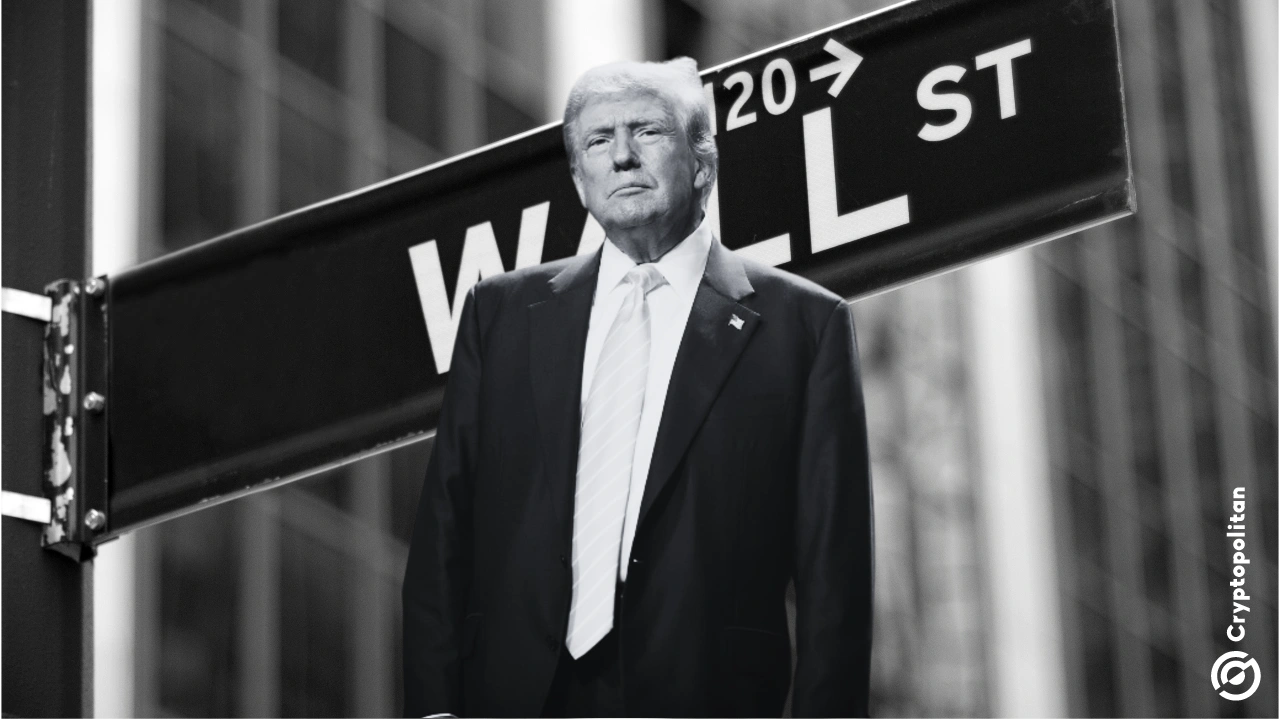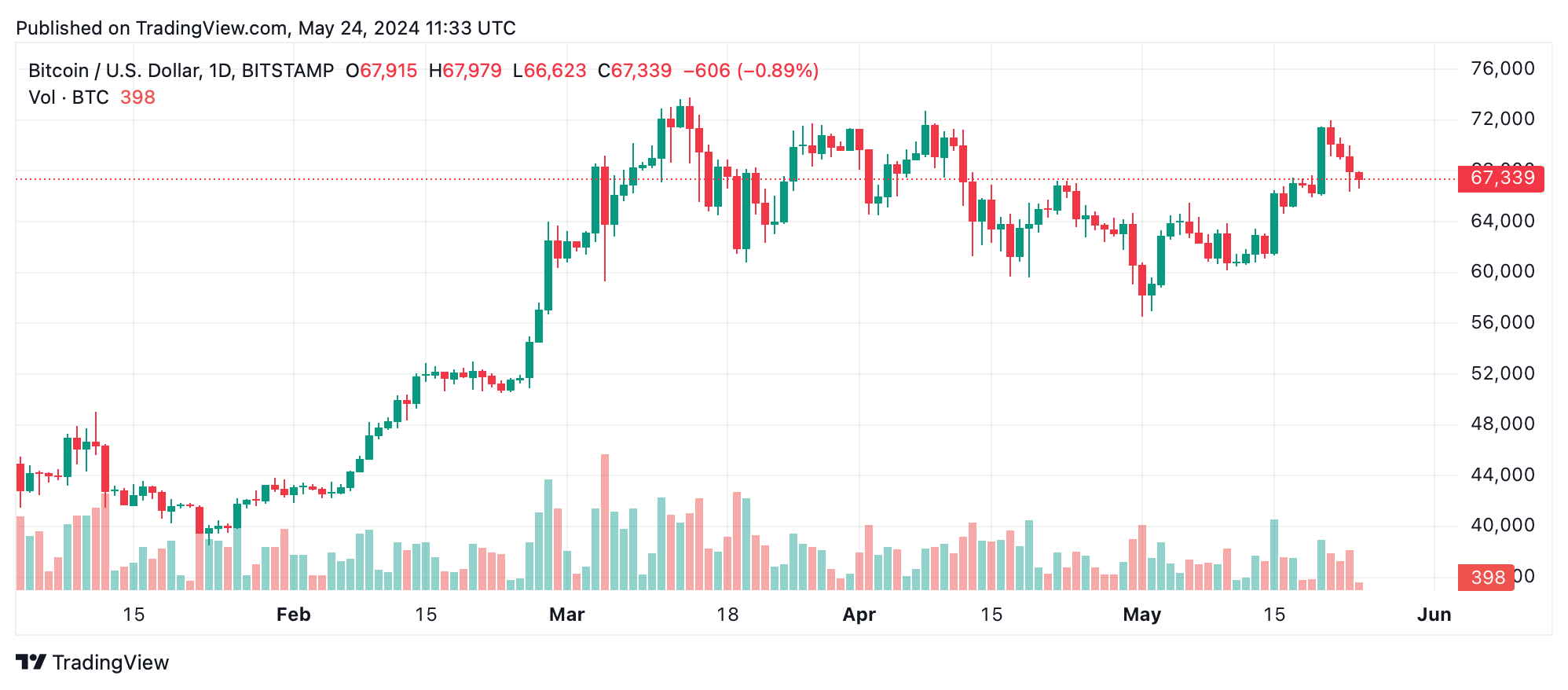Wall Street advisers are predicting the Trump economy to lead a surge in business activities come 2025. They expecct loosening regulatory controls to boost mergers and acquisitions (M&A) alongside stock market debuts.
The shift is attributed to President-elect Donald Trump’s vows throughout his presidential campaign, which foreshadowed a less strict regulatory environment that might boost company activity and investor confidence in the next year.
Christina Minnis, head of global credit finance and acquisitions at Goldman Sachs, told attendees at Bloomberg’s Women, Money and Power conference in London that there is a growing sense of optimism surrounding M&A activity in the United States.
“I think there’s probably a sentiment that M&A activity in the US might be slightly more robust,” Minnis said, referring to Trump’s policy proposals that promise a friendlier environment for corporate transactions.
Minnis believes the market sentiment has been especially apparent since the election, with an increase in inquiries from sponsors and corporate clients who had been previously hesitant due to regulatory uncertainties.
For $1 billion, Donald Trump is now promising to exempt businesses from government regulations — including environmental and safety requirements. pic.twitter.com/djEBKaBy0j
— Max Burns (@themaxburns) December 10, 2024
Despite this optimism in the US, the Goldman Sachs credit finance head cautioned that European markets may experience a more cautious approach due to concerns over tariffs that the US might potentially impose. However, she remains confident that the summer months will see a general uptick in global deal activity as markets adjust to the new political landscape.
Analysts optimistic about Trump’s policies and proposed regulatory changes
Alison Harding-Jones, Deutsche Bank’s global head of M&A, echoed Minnis’s sentiment, highlighting the change in regulatory climate expected under Trump’s administration. She noted that under Biden’s administration, the regulatory process often dragged on for years, with some deals stalling entirely as watchdogs examined every detail.
“The mindset is the US has definitely been much more difficult under Biden, and that will change and get better,” Harding-Jones said.
Simona Maellare, global co-head of the alternative capital group at UBS, also sees a shift in the market dynamics. She stated that private equity firms, which have been sitting on trillions of dollars in unspent capital, are likely to take advantage of the new regulatory environment.
“What has prevented deals in the past was this bid-ask on valuations,” Maellare explained. “…But the economics don’t work like that. If they’re not encouraged, if they don’t make the returns, they really can’t do it.”
The relaxation of regulatory constraints could offer these firms an ideal scenario for deploying their capital in a more favorable environment.
In Europe, the change in US leadership could spur consolidation within the region’s banking industry, which has struggled to keep pace with the US sector since the financial crisis. Moreover, Harding-Jones pointed out that while there has been some uptick in acquisitions by European lenders, most deals have been limited to domestic transactions.
A more relaxed regulatory environment in the US could prompt European regulators to move forward with the much-discussed banking union, long considered a key goal for the region’s lawmakers.
The crypto industry poised to thrive under Trump’s administration
Alongside traditional industries, the crypto sector is also set to benefit from the expected shift in regulatory dynamics. With President-elect Trump’s promises of a more favorable regulatory regime for digital assets, crypto-native firms are likely to see accelerated growth.
🚨BREAKING: Eric Trump confirms President Trump’s plan to make American cryptocurrencies such as $XRP $XLM $BTC and $ETH tax free
I was the first public source of this story and reported on it. This will put non American crypto at a -37% tax disadvantage.
DM to setup your qfs pic.twitter.com/AXus9gV3Fq
— Official Bo Polny (@BoPolnysays) December 11, 2024
Industry experts believe that the loosening of regulatory restrictions will benefit companies like Coinbase Global Inc., the largest US crypto exchange, whose stock surged following the election results.
Per a recent Bloomberg report, private crypto firms are also benefiting from the expected change, with Ripple Labs seeing a 72% increase in shares traded on secondary markets.
Crypto firms face competition from TradFi players
For years, many established financial institutions have avoided the crypto space due to regulatory uncertainty. However, as the regulatory environment becomes more transparent under Trump, major players like State Street, JPMorgan Chase, BNY Mellon, and Bank of America are expected to delve deeper into the digital currency sector, offering services such as digital asset custody and trading.
“As we look into 2025 and 2026, we are going to see a tremendous amount of interest from the TradFi players to get more involved in the crypto space,” Kristin Smith, CEO of the Blockchain Association, told Bloomberg.
Coinbase CFO Alesia Haas acknowledged the challenges posed by this competition but highlighted the company’s advantage in terms of experience and knowledge. “I do think we are going to see more competition,” Haas said during a Goldman Sachs conference.
However, she pointed out that most banks and other potential competitors lack the deep understanding of blockchain technology and cryptocurrency security that Coinbase has developed, positioning the firm as a potential partner for traditional institutions looking to enter the space.
While the arrival of traditional financial institutions could increase competition, Smith does not see it as a threat to the crypto industry. Rather, she believes that the market will grow significantly as more players enter the space.
“I don’t think people in the industry are perceiving it as a threat because overall, the market will get much, much bigger,” she added.
A Step-By-Step System To Launching Your Web3 Career and Landing High-Paying Crypto Jobs in 90 Days.





